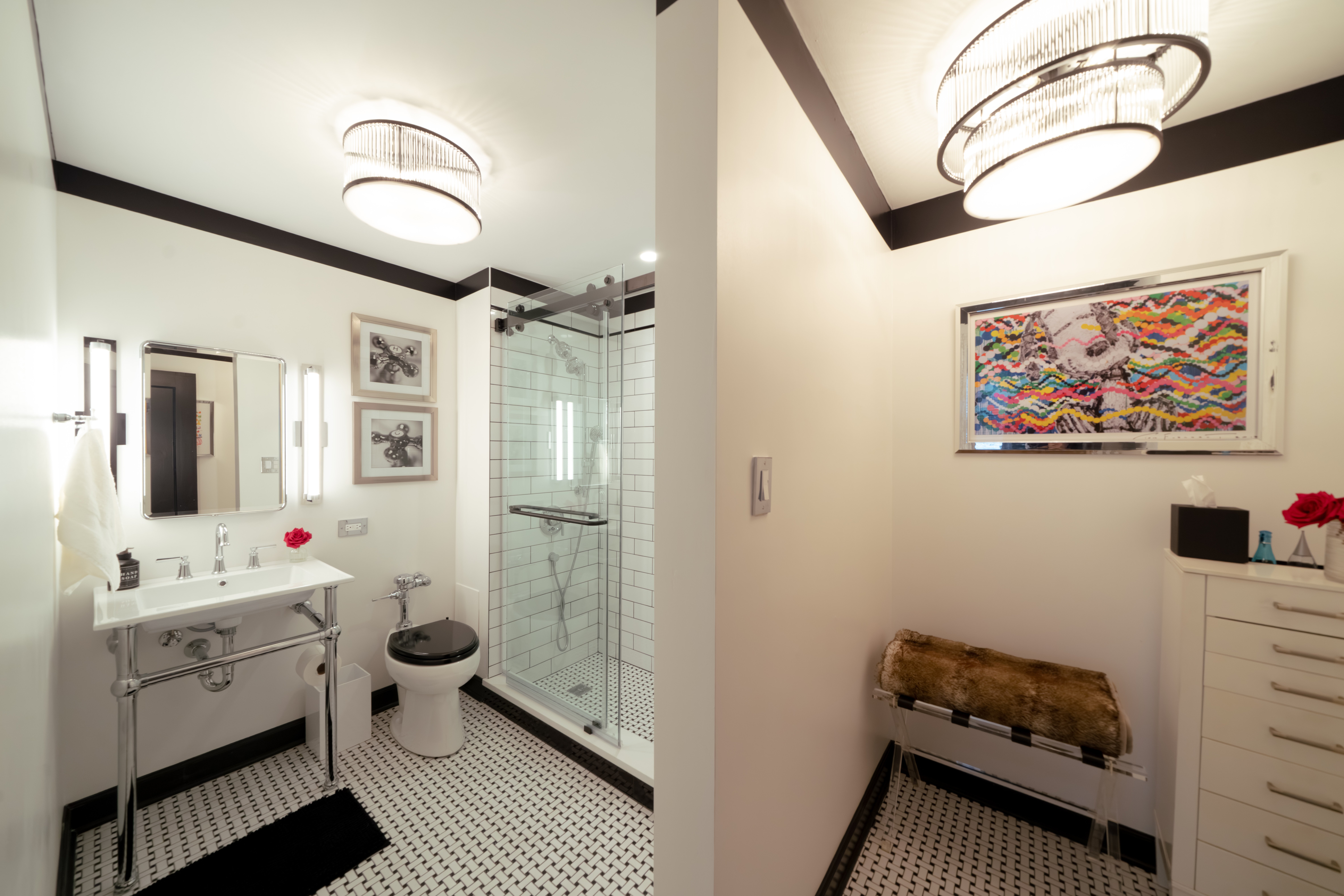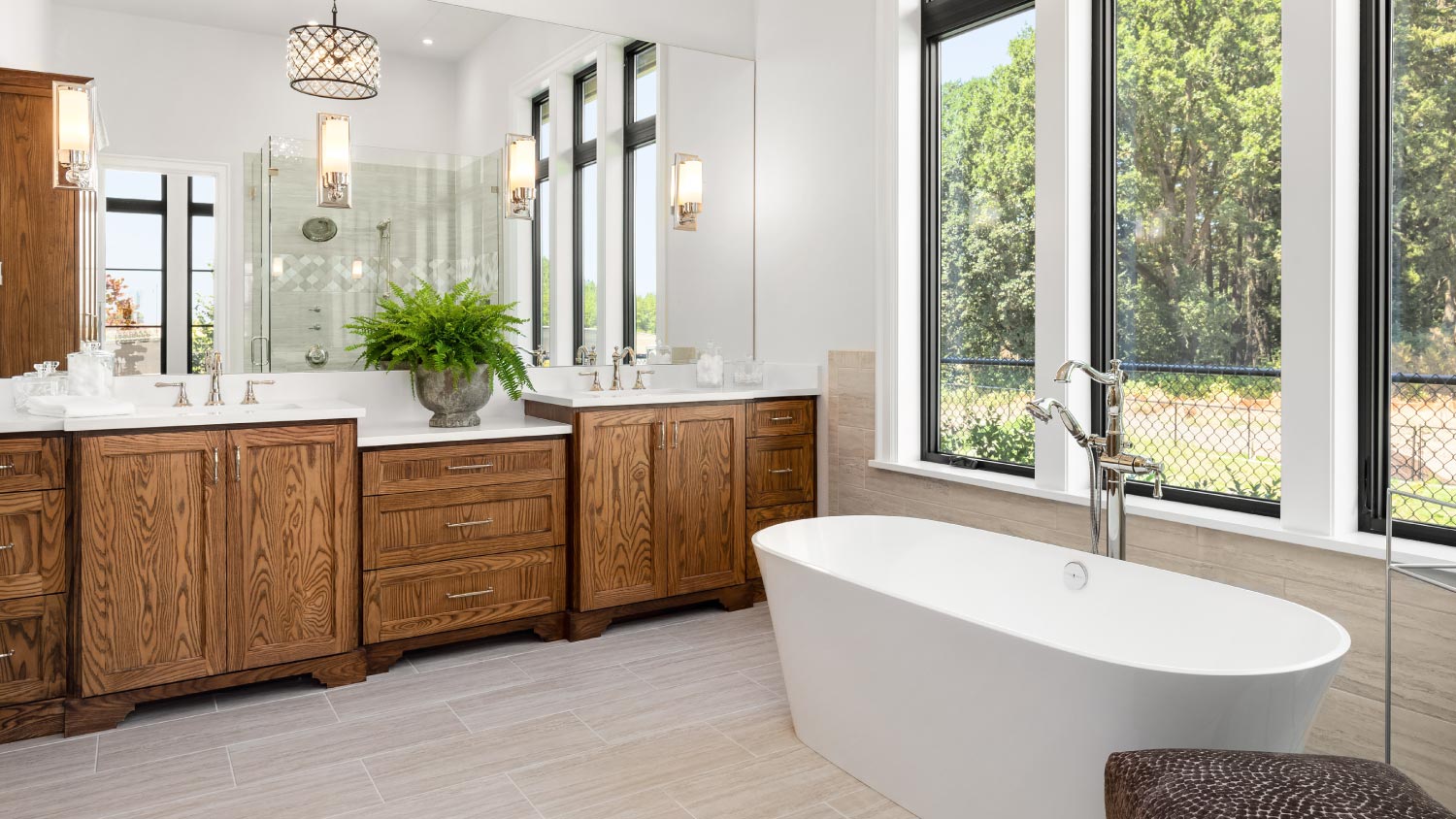
Various factors affect the total tub-to-shower conversion cost, including the size of the area, type of shower, materials, and labor fees.
Your sales technique should include anticipating customer questions, pre-qualifying leads, and coming to meetings prepared


Construction companies grow by doing quality work and establishing a reputation in the local area. To foster that growth, you might advertise your services to bring in leads.
But what happens after the lead comes in? How can your construction company convert leads into sales? It's the "phase two" of the sales and marketing process that can pose the greatest challenge. The time-honored construction sales techniques below will help you sell your services and close more sales.
The sales techniques you use for your construction business should start well before any interaction with a potential customer.
First, you'll need to understand your customers' needs and how to provide those services. Identify what you bring to the table and what makes you different from similar construction companies.
Ask yourself these questions:
What are my core strengths?
Do I have a niche or specialization?
What are my competitors doing?
Where are my growth opportunities?
Another helpful exercise is to reverse the sales process and pretend you're a customer looking for your services. Ask yourself why someone would want to work with you. Identifying key decision-making criteria will help you understand your target market. But it’ll also show you can solve your customers’ problems, i.e., remodel their house!
Home remodelers and builders are usually at the worksite, leading the project from start to finish. But there's also paperwork, bookkeeping, and other administrative chores. Setting aside time for sales may not be high on your priority list, but it’s essential to bringing in potential customers.
Aim to devote 10 percent of your time each day to these sales tasks:
Sales meetings where you and/or your team identify each prospect and how close they are to making a commitment. This is commonly known as the “sales funnel.”
Sales calls with the goal of moving each prospect toward commitment (identify their obstacles to commitment and then overcome those obstacles).
Tracking sales and leads
Follow-up calls and letters
You can add staff to support these functions as your company grows. Your process may benefit from hiring sales reps and sales managers who can take the pressure off you to close leads.
Some of the sales time mentioned above can include gathering and tracking a list of former, present, and future customers. Keeping your sales pipeline full can lead to more sales in the long run. You can do this via a spreadsheet or with sales database software that codes customers based on potential and status.
Where can you find new customers? Building a strong referral network is a proven marketing winner for construction industry pros. Advertising your business in the local area can keep you top-of-mind with former or future customers as well. Using your Angi pro account can also help you secure qualified leads and get new customers.
It's always exciting to get a lead. Whether it's an inquiry from your Angi pro account or a call from a referral, your hard work is paying off. But are all customers right for you?
One step before responding to initial leads is to prepare a list of questions. This benefits both you and the potential customer.
Some sample questions general contractors can ask customers include:
What is your timeframe?
How much is your budget?
How did you find me?
Researching project-specific questions before sales calls will enable you to determine rapidly if a customer is a good fit. It’ll also make you look more professional in the eyes of the lead. You'll want to watch for tire kickers that like to ask questions but are not serious about hiring.
Most people identify meeting with prospects as the true sales process. We've all heard about making the pitch and closing the deal.
Granted, these are important aspects of construction sales techniques, but even the world's greatest salesperson needs more than deal-closing acumen. It takes preparation and soft skills like communication and critical thinking to engage and persuade the prospect.
Connecting with the potential customer and establishing a level of trust can lead to more sales. Since most home remodeling prospects interview two to three companies before determining the winning bid, making a great first impression and setting yourself apart from the competition is vital.
Once a homeowner has decided to renovate, they're anxious to get started. They'll often send out inquiries to several prospective remodeling companies, and those that respond quickly get the job.
In fact, research shows that companies that reach new leads within an hour were nearly seven times more likely to have meaningful conversations with decision-makers than those who waited more than 60 minutes.
Politely answering the phone seems like a no-brainer, but a pleasant tone will differentiate you.
Written communications are just as important and should be engaging and professional. Using correct grammar, spelling, and punctuation shows a level of professionalism to the prospect that others may not.
A great way to check your correspondence for typos, tone, and more is with free online writing tools like Grammarly or Hemingway Editor.
When speaking to potential customers in person, your appearance should be neat. Visiting the prospect's home after working at the job site on a hot summer day may not give the best impression.
Always bring your business card, a notebook and pen, your smart device with a camera, and a measuring tape. If you have a logo, spend the money to have it embroidered on button-down shirts which you should wear every time you are on the job site.
Wash your vehicle and remove the clutter and, if you have a company name and logo, get a magnetic version to put on both driver and passenger front doors. Uniforms convey authority and expertise.
Looking (and sounding) professional takes your business to a higher level than your competition. Simple steps can add up to more customers.
The marketing process extends to meeting with leads. Preparing before your appointment shows you’re organized and that you care about getting a prospect’s business.
Your pre-meeting checklist should include:
Portfolio that highlights previous work
Well-designed brochure
Initial drive-by of the home (if applicable to the project)
Thoughtful questions to ask the homeowner. (Watch a few videos on the specific type of renovation they are asking you about to see how others have approached the project.)
If you’ve already had a pre-meeting phone call (and gathered enough information to prepare a proposal), come prepared with a detailed timeline and pricing options.
Consider offering three pricing options with levels of service based on the project needs. There’s a well-known model for this where you have a very high-priced option, a very low no-frills option, and a middle option that offers more value.
In a study, it was suggested that it’s a mistake to think that offering a bigger discount will help close the sale. Researchers at the University of Minnesota's Carlson School of Management learned that, given a choice, customers preferred getting more value (extra services, upgrades) than a discount.
80 percent of construction professionals never place a follow-up call after an initial sales meeting on the phone or in person, according to a survey of construction professionals. That striking lack of attention to detail can make a vast difference in your sales closing ratio.
You might make the sale on the initial contact. But some homeowners may have several home remodelers to contact and take their time in deciding next steps.
Engage with the prospect with these follow-up tasks:
Handwritten thank you letter
Follow-up text or phone call
Prepare a meeting summary with a list of next steps (prospect to review quote that will be sent in the next days/week, proposed project start date, estimated project duration, and will they serve as a reference when they are totally satisfied with the completed job).
Send a proposal or additional marketing materials and links to articles and videos related to the project
Courteous communication with leads during the sale process can set you apart from the competition. You may be able to answer homeowner questions or provide missing details that will help close the sale.
But be cautious with too many touchpoints or overzealous sales pitches so you don’t come across as desperate. Prospects are looking for expertise and leadership from their remodeler.
Perfecting your sales technique takes planning and practice along with a lot of common sense. Projecting confidence about your construction company's services and your ability to solve customer's problems are baseline sales strategies.
Grow your construction business and increase your exposure to thousands of homeowners in your area when you sign up for Angi Ads. From more leads to lead management, it’ll be your secret weapon to year-round sales.
From average costs to expert advice, get all the answers you need to get your job done.

Various factors affect the total tub-to-shower conversion cost, including the size of the area, type of shower, materials, and labor fees.

Remodeling your bathroom can add significant value to your home. Your bathroom remodel cost in Columbus, OH will depend on size, fixtures, materials, labor, and other factors.

The cost to add a half bathroom varies based on geography and your choice of additions. Read on to discover just what factors into your total project cost.

An outdated bathroom is transformed into a vintage-inspired space with basketweave floor tile, a console sink, and subway tile.

An updated bathtub can give a bathroom a whole new look. Find out how much it costs to replace a bathtub in Tampa, FL, including prices by type and labor costs.

Adding kitchen cabinets to your ceiling is a budget-friendly way to increase your storage space and make your kitchen look more attractive.